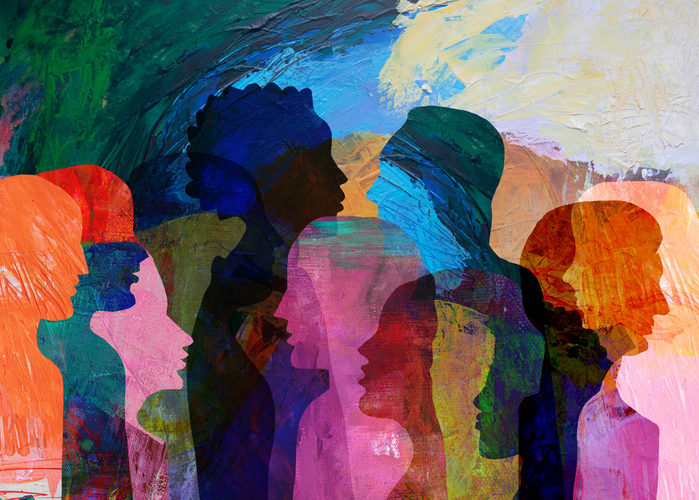About the Project
Massey Comprehensive Cancer Center and VCU partnered to create this vibrant, traveling mural, The Brushstrokes of Discovery, as a tribute to the vital role of dedicated patients and tissue donation in advancing cancer research.
This powerful artwork serves as a visual reminder: every tissue donation fuels scientific breakthroughs, accelerating progress toward better outcomes for everyone affected by cancer. It is a profound celebration of the courageous collaboration between patients and Massey’s research teams.
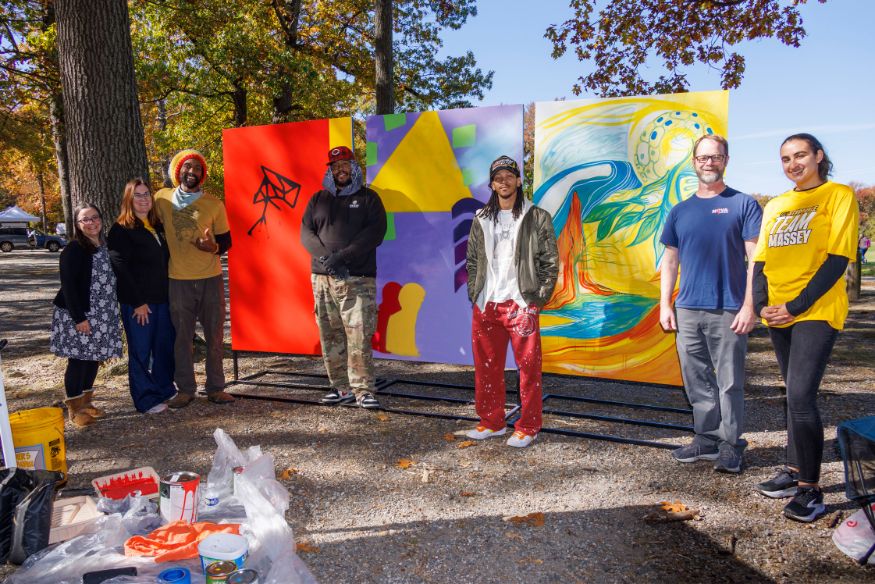
Each vivid stroke reflects the bravery of those facing their diagnosis and the unwavering dedication of scientists committed to transforming treatment and improving lives.
On November 1, 2025, we met in RVA Big Market to kick off and complete the painting the Brushstrokes of Discovery mural as a community. This was the one and only opportunity for community members to contribute their brushstrokes to the artwork.
Now that the painting is complete, the mural will become a traveling exhibit, moving to different locations across the communities we serve approximately every two weeks. These future stops are for viewing only, offering communities a chance to engage with the mural’s message and story.
Upcoming Mural Locations:
- December 3-19: VCU Student Commons on the Monroe Park Campus
Address: 907 Floyd Ave, Richmond, VA 23284 - January 5-16, 2026: VCU Health Sciences Research Building and Annex
Address: 1112 E. Clay St., Richmond, VA 23298
To learn more about additional mural locations across the community, connect with us on Instagram (@vcumassey) and Facebook (facebook.com/VCUMasseyCancerCenter).
Watch the Recap
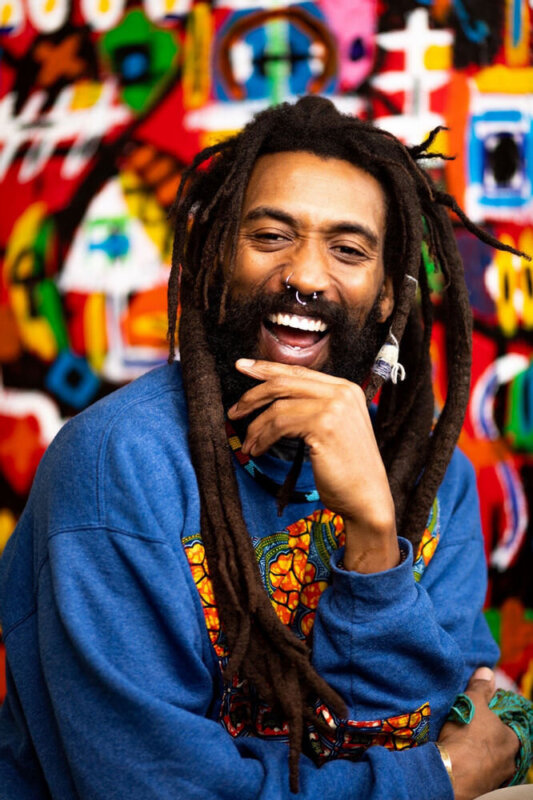 Khalid Thompson (Panel #1 Artist: Facing Cancer)
Khalid Thompson (Panel #1 Artist: Facing Cancer)
Website: hkhalidthompson.com | Instagram: @khalid_thompson
Richmond native Khalid Thompson is a visual artist known for his improvisational painting style, blending Afro Abstraction with jazz-inspired spontaneity. He has exhibited across the U.S. and internationally, including the U.S. Embassy in Rome. His “Painting the Moment” workshops have been featured at the Smithsonian National Museum of African Art and Art 180. Khalid engages communities through monthly workshops and public commissions, including work for the City of Alexandria.
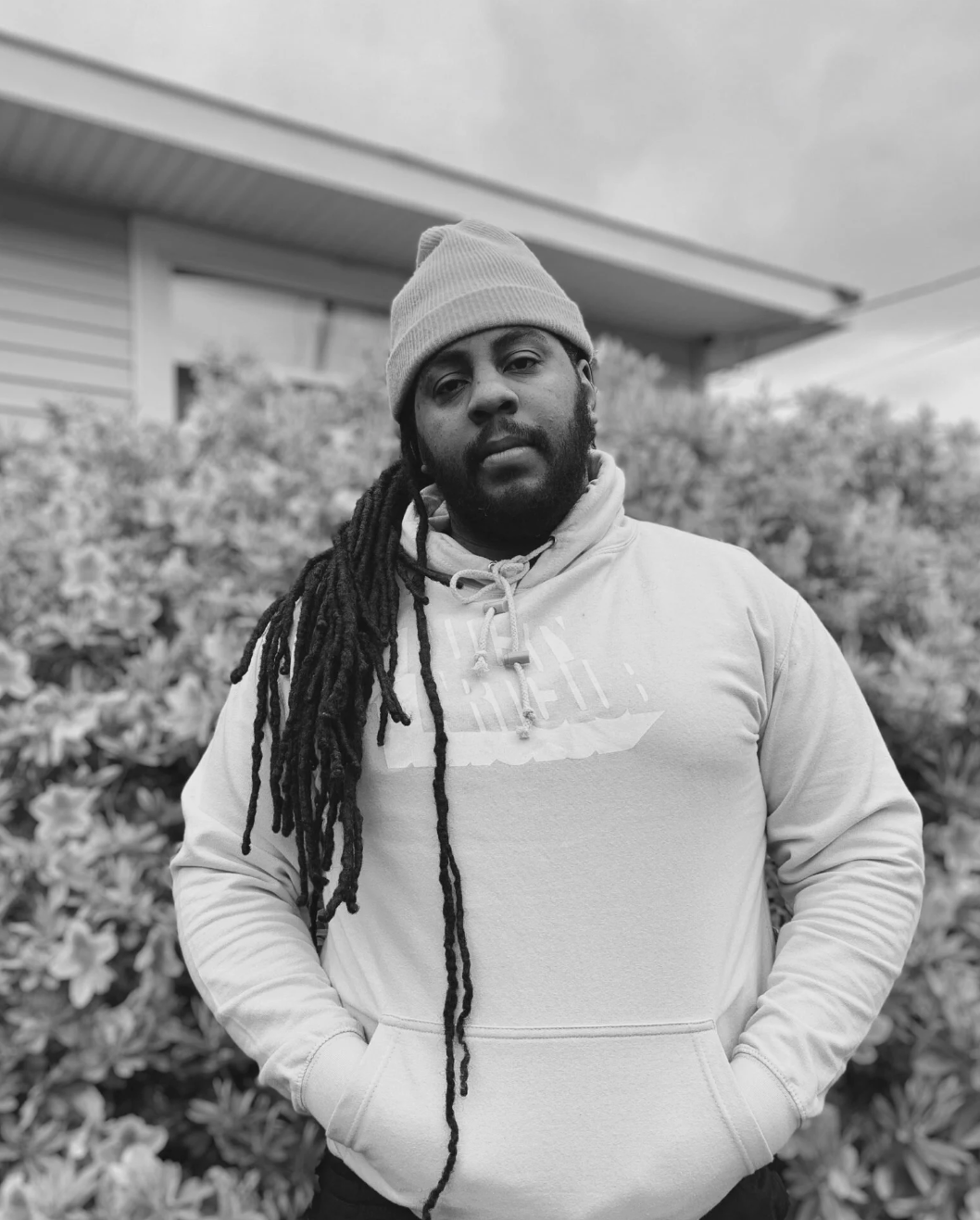 Silly Genius Thompson (Panel #2 Artist: Science at Work)
Silly Genius Thompson (Panel #2 Artist: Science at Work)
Website: silly-genius.com | Instagram: @sillygenius
Silly Genius is a multidisciplinary artist from RVA whose style draws from comics, cartoons, graffiti, and fine art. His work aims to make contemporary art more accessible, bridging the gap between traditional art spaces and underserved communities. Through vibrant visuals and cultural commentary, Silly Genius challenges norms and invites dialogue.
Rain Spann (Panel #3 Artist: Restoring Tomorrow)
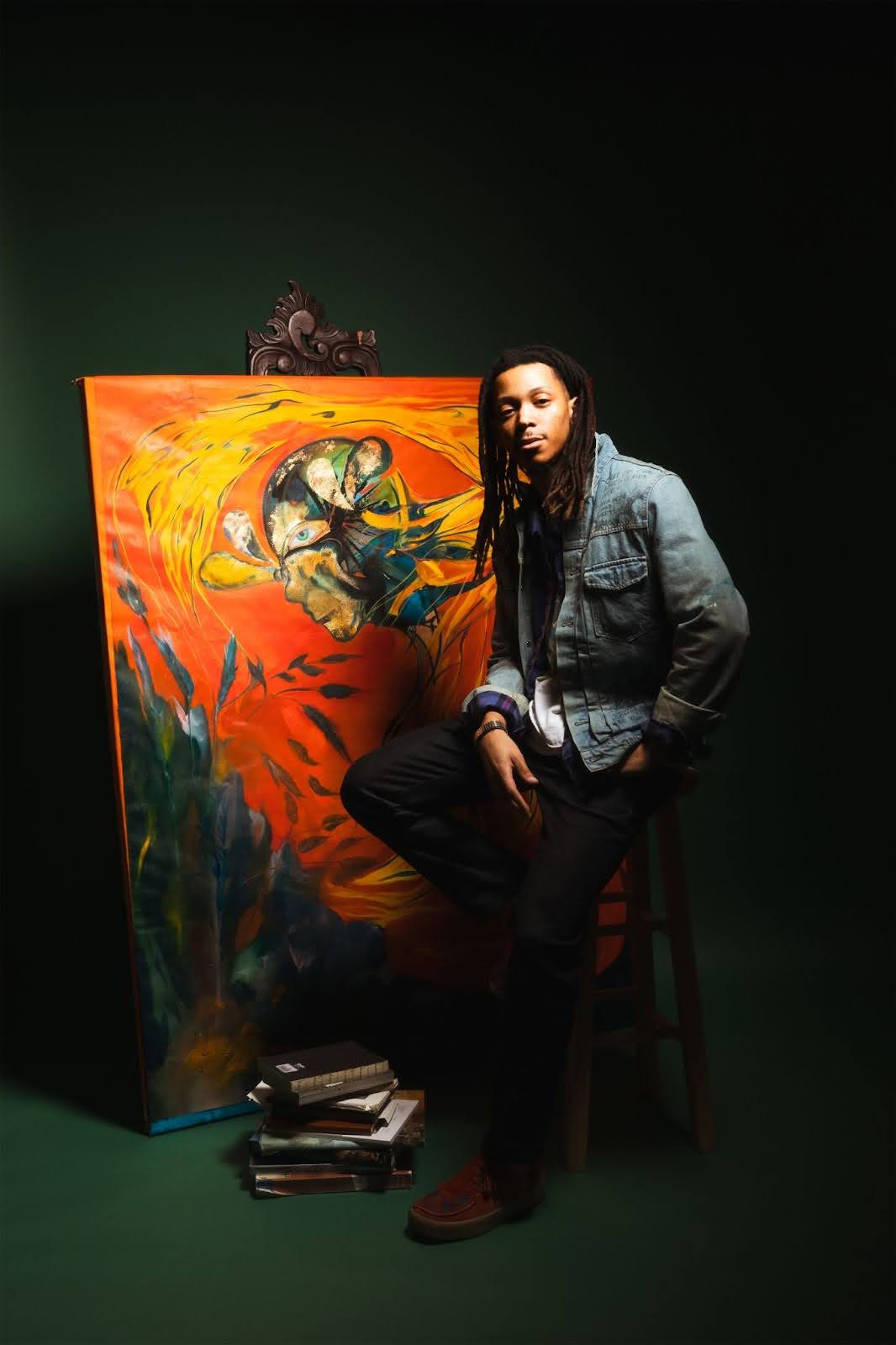
Website: raintheneo.com | Instagram: @raintheneo
Rain Spann is a Virginia-based artist whose work blends figurative abstraction with reimagined Southern landscapes. His compositions explore themes of spiritual impermanence, rebirth, and reverence, using geometric and organic forms crafted from paper and textiles. Spann’s process combines sewing, painting, and drawing to reflect the ethereal nature of the human spirit. He studied Computer Engineering at Old Dominion University and has exhibited nationally and internationally.
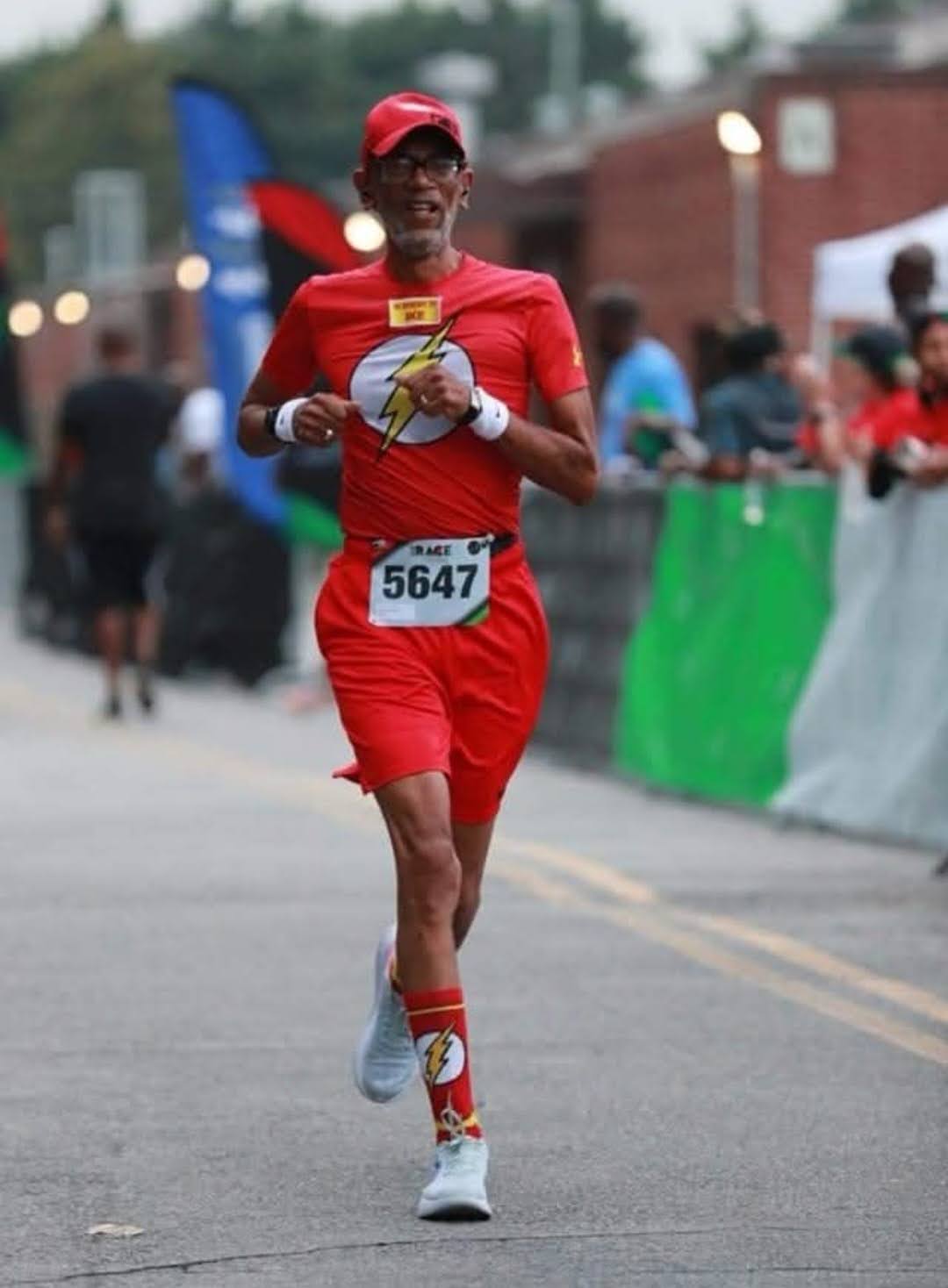 Ron Thompson is a retired bank accountant from New York who became a Petersburg resident in 2008. Since 2010, he has been the clinic coordinator and food bank administrator at Pathways, a free clinic in Petersburg. As a member of the Petersburg Wellness Consortium he led a walking team to help achieve the million mile challenge. Ron is an active Cancer Champ and co-lead of the most recent Colorectal Health Research Summit held at VSU in Spring 2025. Ron is a community activist who ensures the health and welfare of others. A cancer survivor himself, much of Ron’s work has focused on health disparities such as food insecurity, cancer screening, and access to medical care. Ron has been an active runner for the last 40 years and has run 10 marathons and 40 half marathons.
Ron Thompson is a retired bank accountant from New York who became a Petersburg resident in 2008. Since 2010, he has been the clinic coordinator and food bank administrator at Pathways, a free clinic in Petersburg. As a member of the Petersburg Wellness Consortium he led a walking team to help achieve the million mile challenge. Ron is an active Cancer Champ and co-lead of the most recent Colorectal Health Research Summit held at VSU in Spring 2025. Ron is a community activist who ensures the health and welfare of others. A cancer survivor himself, much of Ron’s work has focused on health disparities such as food insecurity, cancer screening, and access to medical care. Ron has been an active runner for the last 40 years and has run 10 marathons and 40 half marathons.
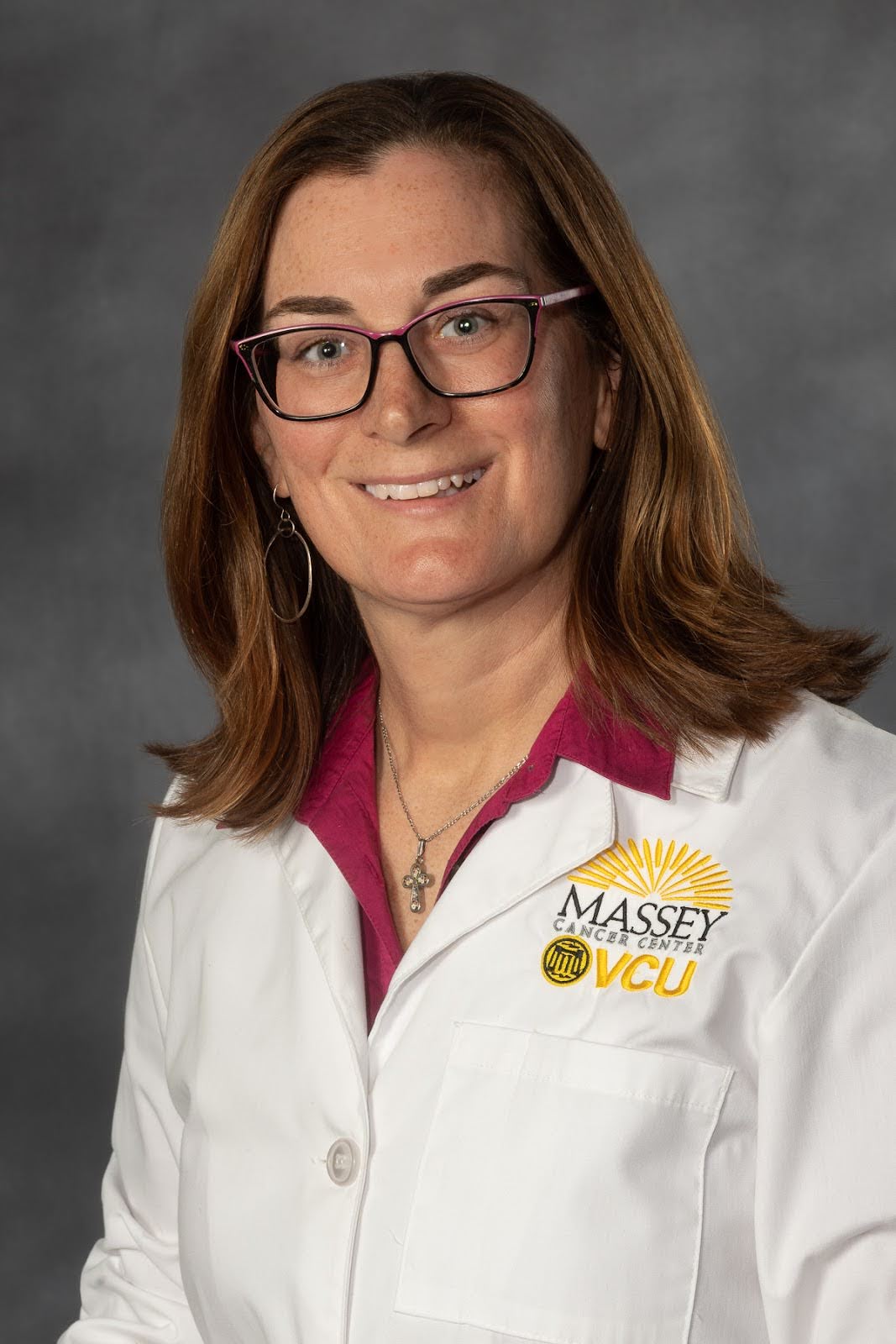 Dr. Jennifer Koblinski is a cancer research faculty member in the Department of Pathology at Virginia Commonwealth University, dedicated to advancing cancer treatment through collaborative science. She leads the Brushstrokes of Discovery mural project alongside MD/PhD student Nina Dashti-Gibson, with support from a wide network of artists, advocates, and institutional partners. Dr. Koblinski is passionate about ensuring the community understands how vital their voices and contributions are to discovering new treatments for cancer patients. She is honored to lead this initiative and deeply grateful to everyone involved in bringing this community-driven project to life.
Dr. Jennifer Koblinski is a cancer research faculty member in the Department of Pathology at Virginia Commonwealth University, dedicated to advancing cancer treatment through collaborative science. She leads the Brushstrokes of Discovery mural project alongside MD/PhD student Nina Dashti-Gibson, with support from a wide network of artists, advocates, and institutional partners. Dr. Koblinski is passionate about ensuring the community understands how vital their voices and contributions are to discovering new treatments for cancer patients. She is honored to lead this initiative and deeply grateful to everyone involved in bringing this community-driven project to life.
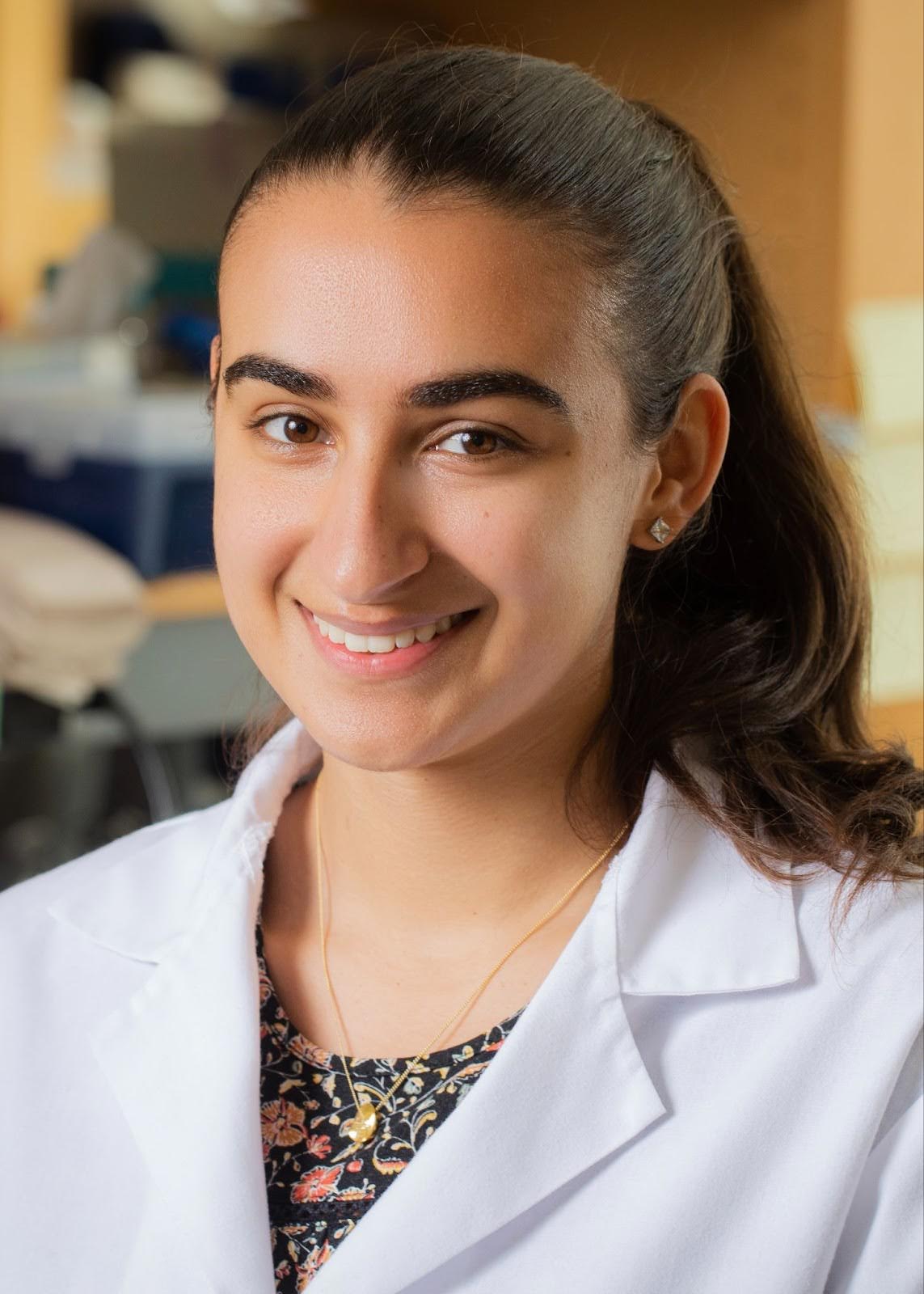 Nina Dashti-Gibson is an MD/PhD student at Virginia Commonwealth University, currently pursuing her PhD in Dr. Chuck Harrell’s laboratory, where she focuses on advancing treatment options for pancreatic cancer. As co-lead of the Brushstrokes of Discovery mural project, Nina brings creativity, compassion, and a deep commitment to bridging science to the community. She is grateful to all who contributed to this collaborative effort and hopes the mural serves as a visual reminder of the role community members play in making scientific discoveries possible.
Nina Dashti-Gibson is an MD/PhD student at Virginia Commonwealth University, currently pursuing her PhD in Dr. Chuck Harrell’s laboratory, where she focuses on advancing treatment options for pancreatic cancer. As co-lead of the Brushstrokes of Discovery mural project, Nina brings creativity, compassion, and a deep commitment to bridging science to the community. She is grateful to all who contributed to this collaborative effort and hopes the mural serves as a visual reminder of the role community members play in making scientific discoveries possible.
When you choose to donate tumor tissue to Massey for research, you are making a powerful contribution to the future of cancer care. Tissue samples are collected from patients who give permission through informed consent.
Informed consent is a process where patients are given clear, understandable information about their medical procedure and how a piece of their tumor will be used for a research study so they can voluntarily decide whether to participate. Once collected, the tumor is preserved and stored in a secure facility and used by scientists to better understand cancer and discover new treatments. The biorepository is maintained by Massey’s Cancer Biorepository and Histopathology Shared Resource.
Thanks to these generous donations, researchers can create special models to study cancer more closely. For example, they might grow tiny versions of tumors in the lab or place small pieces of tumor tissue into mice to see how cancer behaves and responds to different treatments. These models help scientists test new medicines and learn which therapies might work best for different types of cancer.
Frozen tumor samples can also be studied later to uncover patterns, like why some cancers grow faster than others, why certain treatments work better for some people, or how we might detect cancer earlier. Each sample gives researchers a deeper look into how cancer cells work, and when many samples are studied together, they can find important clues that lead to better care for future patients.
To honor the vital role patients play in research, Massey created the Brushstrokes of Discovery community mural. This artwork celebrates your contribution and helps share research findings in a way that’s meaningful and easy to understand. It’s a visual reminder that every tissue donation helps move science forward and brings us closer to better outcomes for everyone affected by cancer.
If you're interested in supporting groundbreaking cancer research and accelerate the development of new treatments that improve patient outcomes, please contact Massey’s Cancer Biorepository and Histopathology Shared Resource by emailing Jennifer Koblinski jkoblinski@vcu.edu or calling 312-618-8010 to discuss tissue donation.
What is tumor tissue donation?
Tumor tissue donation involves giving a small sample of your tumor, usually collected during surgery or a biopsy, to researchers for scientific study. These samples help scientists learn more about how cancer works and how to develop better treatments.
How is my tissue used in research?
Donated tissue is carefully preserved and studied in labs. Researchers use it to understand how cancer grows, test new treatments, and develop personalized therapies. Sometimes, they create models of your tumor to see how it responds to different drugs.
Is donating my tissue safe?
Yes. Tissue donation typically uses samples already being removed during your medical procedure, so there’s no extra risk or discomfort involved.
Will my personal information be kept private?
Absolutely. Your identity is protected. Researchers use coded information to study the tissue, and your name or personal details are never shared in research findings.
Do I have to donate my tissue?
No. Tissue donation is completely voluntary. You will be asked to sign a consent form after learning all the details, and you can choose not to participate at any time.
Can I change my mind after donating?
Yes. You can withdraw your consent at any time, and your tissue will no longer be used in future research.
Will I get results from the research done on my tissue?
Research using donated tissue often takes years and is not designed to give individual results. However, findings from these studies may help improve treatments for future patients.
How does this help other patients?
Your donation helps scientists discover new ways to treat cancer, understand why some treatments work better for certain people, and find clues to detect cancer earlier. It’s a gift that can benefit many lives.
Who oversees this research?
All research using donated tissue is reviewed and approved by ethics committees and follows strict guidelines to protect your rights and privacy.
How can I learn more or donate?
You can contact Massey’s Cancer Biorepository and Histopathology Shared Resource by emailing Jennifer Koblinski (Scientific director) jkoblinski@vcu.edu or calling 312-618-8010 to ask questions or discuss donation.
The Brushstrokes of Discovery mural project was made possible through the generous support and collaboration of many individuals and organizations.
Mural Funding Support:
- The Division of Community Engagement in the Office of the Provost at Virginia Commonwealth University, through the Community-Engaged Data Dissemination of Research Findings grant
- Massey Comprehensive Cancer Center
Research Funding Support:
- Products supporting this research were generated by the VCU Cancer Mouse Models Core Laboratory and the Tissue and Data Acquisition and Analysis Core Laboratory, supported in part by funding to the Massey Comprehensive Cancer Center from the NIH-NCI Cancer Center Support Grant (P30 CA016059)
- Patient-derived mouse models used in this research are funded by the NCI U54 CA283762 grant.
Community & Creative Partners:
- Special thanks to Karen Grisevich at Grow RVA for generously providing the location for our mural painting and community engagement event
- Jason at Big Secret for creating the engraved QR code plate for the mural
- Barker Designs for designing and constructing the mural panels
If you're interested in supporting groundbreaking cancer research and accelerate the development of new treatments that improve patient outcomes, please contact Massey’s Cancer Biorepository and Histopathology Shared Resource by emailing Jennifer Koblinski jkoblinski@vcu.edu or calling 312-618-8010 to discuss tissue donation.

